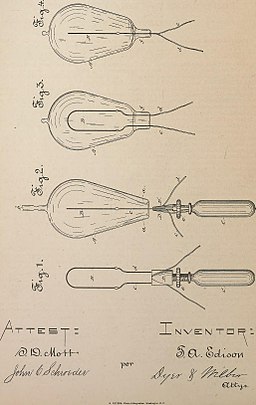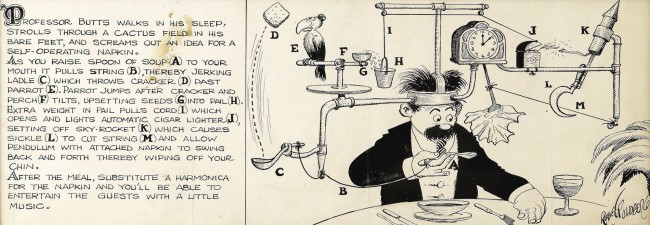Something for Nothing
― an excerpt from Article I, Section 8 of the United States Constitution.
Recently the pharmaceutical company Allergan cut a deal with the St. Regis Mohawk Tribe of upstate New York to hold the patent for one of its drugs in order to protect the company from patent challenges. The reasoning behind the deal is that since Native American tribes have sovereign immunity from some types of lawsuits under the 11th Amendment to the Constitution, Allergan is protecting itself from expensive and sometimes unwarranted litigation relating to its patent. In return, the St. Regis Mohawk Tribe will receive millions of dollars up front, and millions more in royalties. Since this is a new type of arrangement, it’s unclear how well it will hold up in court.

Illustration for an 1881 patent granted to Thomas Edison for an improvement to the incandescent light bulb he had first patented in 1880, itself an improvement built on the work of Canadian inventor Henry Woodward. Edison collected 2,332 patents worldwide, many of them for incremental improvements such as the one pictured here.
It’s hard to find fault with the St. Regis Mohawk Tribe for agreeing to the deal with Allergan. Native American tribes are often poor, their reservations pushed onto marginally productive land, and if they can take advantage of their status as sovereign nations within the United States to make some money, then more power to them. That same sovereign nation status, after all, has usually proved a mockery as European immigrants violated treaty after treaty with the Native Americans in pursuit of land and natural resources, taking what they liked with military force if words would not suffice.

This cartoon of a “self-operating napkin” machine by Rube Goldberg originally appeared in the September 26, 1931 issue of Collier’s Magazine.
This film of less than two minutes demonstrates Wallace’s endless enthusiasm for Goldbergian contraptions, much to the dismay of his dog, Gromit.
Some states have enacted such legislation, but where the case gets decided in a federal court, such as would be the situation should Allergan get challenged or challenge another party, the proceedings are not as clear due to fluid interpretations of the 11th Amendment. It appears that besides tightening up the rules governing patents, the next step is for Congress and the States to clarify the 11th Amendment to take away the sovereign immunity loophole. It’s unfortunate that Native American tribes would be denied a source of revenue, but patent parking really is a shady deal that needs to be stopped before it goes too far, similar to what has happened with the entrenchment of offshore tax havens for corporations.
― Techly 
